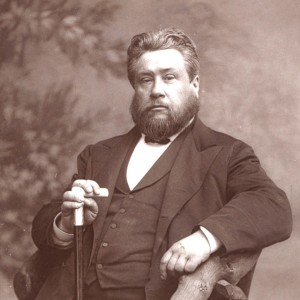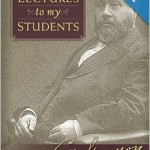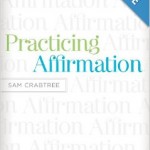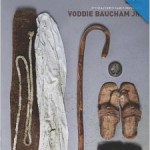No man can do me a truer kindness in this world than to pray for me. – Spurgeon
Category Archives: Spurgeon
The Soul-Stirring Spurgeon
As a young child I loved the newspaper; and when I say newspaper I mean the sports page of The Dallas Morning News.
Every so often, however, I would dare to venture beyond the league standings, players statistics, and bombastic opinions of columnists. One such venture was the weekly citizen profile in the metro section. The profile would take a notable citizen in the county and ask him or her several questions so readers could get to know them better. One of the most common questions was, “If you could invite any three people do a dinner party, whom would you invite?”
What would you say if I adjusted the question to ask, “If you could invite any one person from church history to a dinner party, whom would you invite?”
For me, the answer must be, “Charles Haddon Spurgeon.”
No man in church history stirs my soul like the Prince of Preachers. His energy, intellect, wit, and eloquence would make that dinner party one to remember for a lifetime. I have never read Spurgeon without finding my heart filled with the majesty of God and the glory of Christ. Have you ever experienced the lion of the Metropolitan Tabernacle?
If not, let the good Dr. Piper introduce you to him.
PIPER ON THE PRINCE
In 2012 RTS Orlando established the Nicole Institute of Baptist Studies and invited Piper to give the first “Spurgeon Lecture”, an annual message designed to equip and inform the audience on a broad range of theological, historical and cultural issues. And what a lecture it was!
Carve out an hour of your day and let the Prince stir your soul in ministry.
An “Exceedingly Precious” Sunday
 “The doctrine of a risen Saviour is exceedingly precious. The resurrection is the corner-stone of the entire building of Christianity. It is the key-stone of the arch of our salvation.
“The doctrine of a risen Saviour is exceedingly precious. The resurrection is the corner-stone of the entire building of Christianity. It is the key-stone of the arch of our salvation.
“It would take a volume to set forth all the streams of living water which flow from this one sacred source, the resurrection of our dear Lord and Saviour Jesus Christ; but to know that he has risen, and to have fellowship with him as such—communing with the risen Saviour by possessing a risen life—seeing him leave the tomb by leaving the tomb of worldliness ourselves, this is even still more precious.
“The doctrine is the basis of the experience, but as the flower is more lovely than the root, so is the experience of fellowship with the risen Saviour more lovely than the doctrine itself. I would have you believe that Christ rose from the dead so as to sing of it, and derive all the consolation which it is possible for you to extract from this well-ascertained and well-witnessed fact.” – Spurgeon
Have Bibline Blood in Preaching
Last week at T4G I was struck afresh by the powerful preaching of men – like Piper, Platt, and Duncan – who use illustration and analogy quite sparingly. From whence does their power come?
The word of God.
They know that illustrations are vital homiletical tools, but stories and analogies cannot animate a soul dead in sin or heart assaulted by Satan’s wiles. Only the word of God can give life. Therefore, in addition to faithful and clear exposition, we ought to recover the beauty of a sermon whose entire content has the melody of Scripture.
Samuel Miller, that old trainer of preachers at Princeton, knew how powerful preaching can be when it is gloriously brimming with biblical language. He said, “Let everyone who wishes to excel in Sermonizing, take the utmost paints to have his mind deeply imbued with the spirit and language of the Word of God.” Telling his students that true eloquence is spiritual in nature, Miller goes on to say,
Whether, then, you wish to form the best pulpit style, to attain the highest spirit of real eloquence, or most effectually to awaken, instruct and impress those who hear you – let your Sermons – and, in order to this, let your minds be deeply imbued, thoroughly pervaded and filled with the spirit and language of the Bible.
PRICK YOUR PREACHING
We want to be like John Bunyan, of whom Spurgeon said, “’Why, this man is a living Bible!’ Prick him anywhere—his blood is Bibline, the very essence of the Bible flows from him. He cannot speak without quoting a text, for his very soul is full of the Word of God. I commend his example to you, beloved.”
How might we strive after an imbuing of Bible that makes ones blood bibline?
4 PURSUITS FOR BIBLINE BLOOD
Read the Bible. As much as we’d wish this could be a “given,” it sadly isn’t. With Lloyd-Jones, we say that every preacher ought to read the entire Bible at least once a year. “But isn’t that legalistic?” you ask. Banish away such a silly notion and dark scheme! If you are a preacher you are a Bible-man first and foremost. Master this text before you master the Puritans, Calvin, or any other towering giant in Christian history. A Bible reading plan like M’Cheyne’s will be a faithful friend in this pursuit.
Memorize the Bible. Be like the blessed man in Psalm 1 who meditates on the Word day and night. Memorizing verses here and there is good, but memorizing books of the Bible is better. It helps protect against proof-texting that ignores context. It will fill you soul with life-giving words. I’d recommend memorizing an epistle and then memorize some choice Psalms. Andy Davis’ little booklet on Scripture memorization is most useful.
Pray the Bible. Not only is praying Scripture a great way to infuse life into your secret prayer, it’s also a powerful way to let the word get dug down deep. The Psalms and prayers of Paul are great places to start.
Talk about the Bible. I do believe the preparation for preaching is a unique vehicle to fill the mind with Bible, but I am thinking about more casual conversation here. Read a book of the Bible with young men in your church, talk about it with your kids, and converse about it at every opportunity. You’ll find the soul soaking up truth at every turn.
Recent Reads
I love to read. By God’s grace I am a pretty fast reader; I usually read a couple books each week. I find it helpful to summarize my thoughts on each book and I offer those thoughts in the hope that you will be encouraged to either read or pass over the given title.
 Lectures to My Students by Charles Spurgeon. Just like Luther’s Tabletalk, this book find the Prince of Preaching lecturing and riffing on various matters related pastoral ministry. If there is a book on pastoral ministry overflowing with more wit and wisdom than Lectures to My Students, I have yet to find it. The book can be read cover to cover or pastors can cherry-pick those lectures most pertinent to their ministry. I’d start with these five: “The Preacher’s Private Prayer”, “Sermons – Their Matter”, “Attention!”, “Earnestness: Its Marring and Maintenance”, and “On Conversion as Our Aim.” LTMS should be read by anyone who hopes to be in the ministry or already is in the ministry.
Lectures to My Students by Charles Spurgeon. Just like Luther’s Tabletalk, this book find the Prince of Preaching lecturing and riffing on various matters related pastoral ministry. If there is a book on pastoral ministry overflowing with more wit and wisdom than Lectures to My Students, I have yet to find it. The book can be read cover to cover or pastors can cherry-pick those lectures most pertinent to their ministry. I’d start with these five: “The Preacher’s Private Prayer”, “Sermons – Their Matter”, “Attention!”, “Earnestness: Its Marring and Maintenance”, and “On Conversion as Our Aim.” LTMS should be read by anyone who hopes to be in the ministry or already is in the ministry.
 An Infinite Journey: Growing Towards Christlikeness by Andrew Davis. I have followed Davis’ ministry ever since I read his story of reforming FBC Durham in North Carolina. So when I saw Challies’ high praise for An Infinite Journey I knew I had to pick it up. And what a book this is! Davis writes, “God has set before the Church of Jesus Christ two infinite journeys. Those two journeys have one destination, one ultimate goal, and in the end will prove to have been one and the same journey after all” (17). What are the two journeys? First, “the external journey of the worldwide advance of the Kingdom of Jesus Christ to all nations.” Second, “the internal journey of an individual Christian from being dead in sin to gloriously perfect in Christ.” Davis proceeds to offer a clear and comprehensive map for each journey with warmth and conviction. An Infinite Journey is one of the most useful books for discipling relationships I have ever read. Highly recommended!
An Infinite Journey: Growing Towards Christlikeness by Andrew Davis. I have followed Davis’ ministry ever since I read his story of reforming FBC Durham in North Carolina. So when I saw Challies’ high praise for An Infinite Journey I knew I had to pick it up. And what a book this is! Davis writes, “God has set before the Church of Jesus Christ two infinite journeys. Those two journeys have one destination, one ultimate goal, and in the end will prove to have been one and the same journey after all” (17). What are the two journeys? First, “the external journey of the worldwide advance of the Kingdom of Jesus Christ to all nations.” Second, “the internal journey of an individual Christian from being dead in sin to gloriously perfect in Christ.” Davis proceeds to offer a clear and comprehensive map for each journey with warmth and conviction. An Infinite Journey is one of the most useful books for discipling relationships I have ever read. Highly recommended!
 Practicing Affirmation: God-Centered Praise of Those Who Are Not God by Sam Crabtree. I first read this book two years ago and immediately thought after finishing it, “I need to read this again – right now!” Practicing Affirmation is indeed one of those rare books that I try to reread every year. Crabtree presents a compelling case for God-centered affirmation in the life of individual Christians and the church as a whole. His thesis is quite simple: “Good affirmations are God-centered, pointing to the image of God in a person” (18). I fail, far too often, in the area of affirmation and every reading of this book proves to be timely for my life and ministry.
Practicing Affirmation: God-Centered Praise of Those Who Are Not God by Sam Crabtree. I first read this book two years ago and immediately thought after finishing it, “I need to read this again – right now!” Practicing Affirmation is indeed one of those rare books that I try to reread every year. Crabtree presents a compelling case for God-centered affirmation in the life of individual Christians and the church as a whole. His thesis is quite simple: “Good affirmations are God-centered, pointing to the image of God in a person” (18). I fail, far too often, in the area of affirmation and every reading of this book proves to be timely for my life and ministry.
 Family Shepherds: Calling and Equipping Men to Lead Their Homes by Voddie Baucham. Once a month the men at our church gather for biblical discussion and encouragement on all manner of topics. This year our focus is on what it means to be a faithful shepherd at home. So I read this book to see if it would be one to recommend and, after reading it, I’d have no problem doing so. Baucham’s offering is a lucid entry into the field of complementarian masculinity. Family Shepherds charts a clear course in its calling of men to lead their homes after the pattern of Scripture.
Family Shepherds: Calling and Equipping Men to Lead Their Homes by Voddie Baucham. Once a month the men at our church gather for biblical discussion and encouragement on all manner of topics. This year our focus is on what it means to be a faithful shepherd at home. So I read this book to see if it would be one to recommend and, after reading it, I’d have no problem doing so. Baucham’s offering is a lucid entry into the field of complementarian masculinity. Family Shepherds charts a clear course in its calling of men to lead their homes after the pattern of Scripture.
 The Adventures of Sherlock Holmes by Sir Arthur Conan Doyle. Sherlock Holmes is, hands down, my favorite character in the history of English literature. Oh to have the mind and acuity of the legendary consulting detective from 221B Baker Street! If you’ve never read The Adventures before, stop everything you are doing and get a copy. You just might be stunned by the readability and rapidity of the now infamous cases that occupy this volume.
The Adventures of Sherlock Holmes by Sir Arthur Conan Doyle. Sherlock Holmes is, hands down, my favorite character in the history of English literature. Oh to have the mind and acuity of the legendary consulting detective from 221B Baker Street! If you’ve never read The Adventures before, stop everything you are doing and get a copy. You just might be stunned by the readability and rapidity of the now infamous cases that occupy this volume.
Among the important elements in the promotion of conversion are your own tone, temper, and spirit in preaching. If you preach the truth in a dull, monotonous style, God may bless it, but in all probability he will not; at any rate the tendency of such a style is not to promote attention, but to hinder it. It is not often that sinners are awakened by ministers who are themselves asleep. – Spurgeon
In Which I Cry “Uncle”
Almost two weeks ago I decided to add a new Endeavor for 2014: read the collected works of Thomas Boston. It was a “go big or go home” Endeavor and I wanted to go big. But now I am going home.
Just yesterday said, “Uncle,” to the great Scotsman.
My reasoning for laying aside the Boston endeavor is quite simple. To read through the twelve volumes in eleven months would mean reading about thirty-five pages a day. If I’m reading fast, those pages would occupy about forty minutes of each day. I spent about ten days attacking the first volume with verve and nearly knocked out the whole thing. But it didn’t take long to realize that this one Endeavor was going to rob time from the other three Endeavors, while also infringing on my afternoon prayers.
Right as I was thinking about laying Boston aside in order to protect prayer time in the afternoon I read this part of Spurgeon’s magnificent lecture on “Earnestness: Its Marring and Maintenance“:
Fan [earnestness] with much supplication. We cannot be too urgent with one another upon this point: no language can be too vehement with which to implore ministers to pray. There is for our brethren and ourselves an absolute necessity for prayer. Necessity!–I hardly like to talk of that, let me rather speak of the deliciousness of prayer–the wondrous sweetness and divine felicity which come to the soul that lives in the atmosphere of prayer. John Fox said, “The time we spend with God in secret is the sweetest time, and the best improved. Therefore, if thou lovest thy life, be in love with prayer.” The devout Mr. Hervey resolved on the bed of sickness–“If God shall spare my life, I will read less and pray more.”
I often think about dying and what I would say on my deathbed. The older I get the more I realize how likely it could be that I would say the same thing as good Mr. Hervey.
And I don’t want to.
So I put Boston back on his venerable shelf in my study and sat down to pray. I think the good Scotsman would commend that endeavor.
A prayerful journey through Boston is still, very much, in the cards . . . just not in 2014.
The grand object of the Christian ministry is the glory of God. Whether souls are converted or not, if Jesus Christ be faithfully preached, the minister has not laboured in vain, for he is a sweet savour unto God as well in them that perish as in them that are saved. Yet, as a rule, God has sent us to preach in order that through the gospel of Jesus Christ the sons of men may be reconciled to Him. – Spurgeon
8 More Tips for Attention-Grabbing Preaching
Yesterday I listed eight exhortations Spurgeon offers for attention-grabbing preaching in his great lecture “Attention!”
Here are the final eight tips, with some choice goodness from the Prince.
8 MORE TIPS FOR ATTENTION-GRABBING PREACHING
- In order to maintain attention, avoid being too long. An old preacher used to say to a young man who preached an hour,–“My dear friend, I do not care what else you preach about, but I wish you would always preach about forty minutes.” We ought seldom to go much beyond that–forty minutes, or, say, three-quarters of an hour. If a fellow cannot say all he has to say in that time, when will he say it? Brevity is a virtue within the reach of all of us; do not let us lose the opportunity of gaining the credit which it brings. If you ask me how you may shorten your sermons, I should say, study them better. Spend more time in the study that you may need less in the pulpit. We are generally longest when we have least to say. A man with a great deal of well-prepared matter will probably not exceed forty minutes; when he has less to say he will go on for fifty minutes, and when he has absolutely nothing he will need an hour to say it in. Attend to these minor things and they will help to retain attention.
- If you want to have the attention of your people, it can only be accomplished by their being led by the Spirit of God into an elevated and devout state of mind. If your people are teachable, prayerful, active, earnest, devout, they will come up to the house of God on purpose to get a blessing. They will take their seats prayerfully, asking God to speak to them through you; they will remain on the watch for every word, and will not weary. They will have an appetite for the gospel, for they know the sweetness of the heavenly manna, and they will be eager to gather their appointed portions.
- Be interested yourself, and you will interest others. The heart of preaching, the throwing of the soul into it, the earnestness which pleads as for life itself, is half the battle as to gaining attention. At the same time, you cannot hold men’s minds in rapt attention by mere earnestness if you have nothing to say. People will not stand at their doors for ever to hear a fellow beat a drum; they will come out to see what he is at, but when they find that it is much ado about nothing, they will slam the door and go in again, as much as to say, “You have taken us in and we do not like it.” Have something to say, and say it earnestly, and the congregation will be at your feet.
- There should be a goodly number of illustrations in our discourses. Illustrate richly and aptly, but not so much with parables imported from foreign sources as with apt similes growing out of the subject itself. Do not, however, think the illustration everything; it is the window, but of what use is the light which it admits if you have nothing for the light to reveal? Garnish your dishes, but remember that the joint is the main point to consider, not the garnishing. Real instruction must be given and solid doctrine taught, or you will find your imagery pall upon your hearers, and they will pine for spiritual meat.
- Cultivate “the surprise power.” There is a great deal of force in that for winning attention. Do not say what everybody expected you would say. Keep your sentences out of ruts. If you have already said, “Salvation is all of grace” do not always add, “and not by human merit,” but vary it and say, “Salvation is all of grace; self-righteousness has not a corner to hide its head in.”
- A very useful help in securing attention is a pause. Know how to pause. Make a point of interjecting arousing parentheses of quietude. Speech is silver, but silence is golden when hearers are inattentive. Keep on, on, on, on, on, with commonplace matter and monotonous tone, and you are rocking the cradle, and deeper slumbers will result; give the cradle a jerk, and sleep will flee.
- Make the people feel that they have an interest in what you are saying to them. This is, in fact, a most essential point, because nobody sleeps while he expects to hear something to his advantage. Self-interest quickens attention. Preach upon practical themes, pressing, present, personal matters, and you will secure an earnest hearing.
- Be yourself clothed with the Spirit of God and then no question about attention or non-attention will arise. Come fresh from the closet and from communion with God, to speak to men for God with all your heart and soul, and you must have power over them. You have golden chains in your mouth which will hold them fast. When God speaks men must listen; and though He may speak through a poor feeble man like themselves, the majesty of the truth will compel them to regard His voice. Supernatural power must be your reliance.
“He who has ears let him hear.”
8 Tips for Attention-Grabbing Preaching
For the last few months I’ve been rereading Spurgeon’s classic work Lectures to My Students. I know of no book on pastoral ministry filled with such wisdom, truth, humor, and usefulness as this one.
One of my favorite lectures is the one entitled “Attention!” Spurgeon introduces the lectures by saying,
Our subject is one which I find scarcely ever noticed in any books upon homiletics . . . How TO OBTAIN AND RETAIN THE ATTENTION OF OUR HEARERS. Their attention must be gained, or nothing can be done with them: and it must be retained, or we may go on word-spinning, but no good will come of it.
After he puts forth a few preliminary thoughts, he goes on to offer sixteen exhortations or rules on how to grab the congregation’s attention in preaching. Here are the first 8 exhortations (I’ll give the other 8 tomorrow), along with some relevant and requisite pithiness from the Prince.
8 TIPS FOR ATTENTION-GRABBING PREACHING
- In order to get attention, the first golden rule is, always say something worth hearing. Give your hearers something which they can treasure up and remember; something likely to be useful to them, the best matter from the best of places, solid doctrine from the divine Word. Give them manna fresh from the skies; not the same thing over and over again, in the same form ad nauseam, like workhouse bread cut into the same shape all the year round. Give them something striking, something that a man might get up in the middle of the night to hear, and which is worth his walking fifty miles to listen to. You are quite capable of doing that. Do it, brethren. Do it continually, and you will have all the attention you can desire.
- Let the good matter which you give them be very clearly arranged. Put the truth before men in a logical, orderly manner, so that they can easily remember it, and they will the more readily receive it.
- Be sure, moreover, to speak plainly.Our Lord and Master was the King of preachers, and yet He never was above anybody’s comprehension, except so far as the grandeur and glory of His matter were concerned; His words and utterances were such that He spake like “the holy child Jesus.” Let your hearts indite a good matter, clearly arranged and plainly put, and you are pretty sure to gain the ear, and so the heart.
- Attend also to your manner of address. Aim in that at the promotion of attention. And here I should say, as a rule do not read your sermons. It is better to do without the manuscript, even if you are driven to recite. It is best of all if you need neither to recite nor to read. If you must read, mind that you do it to perfection. Be the very best of readers, and you had need to be if you would secure attention.
- If you be listened to, do not extemporise in the emphatic sense. Do not go into the pulpit and say the first thing that comes to hand, for the uppermost thing with most men is mere froth. Your people need discourses which have been prayed over and laboriously prepared. The best method is, in my judgment, that in which the man does not extemporise the matter, but extemporises the words.
- Make your manner as pleasing as it can possibly be. Vary your voice continually. Vary your speed as well–dash as rapidly as a lightning flash, and anon, travel forward in quiet majesty. Shift your accent, move your emphasis, and avoid sing-song. Vary the tone; use the bass sometimes, and let the thunders roll within; at other times speak as you ought to do generally–from the lips, and let your speech be conversational. Anything for a change. Human nature craves for variety, and God grants it in nature, providence and grace; let us have it in sermons also.
- As a rule, do no make the introduction too long. It is always a pity to build a great porch to a little house.
- In preaching, do not repeat yourselves. Do not repeat the same idea over and over again in other words. Let there be something fresh in each sentence. Be not for ever hammering away at the same nail: yours is a large Bible; permit the people to enjoy its length and breadth.



